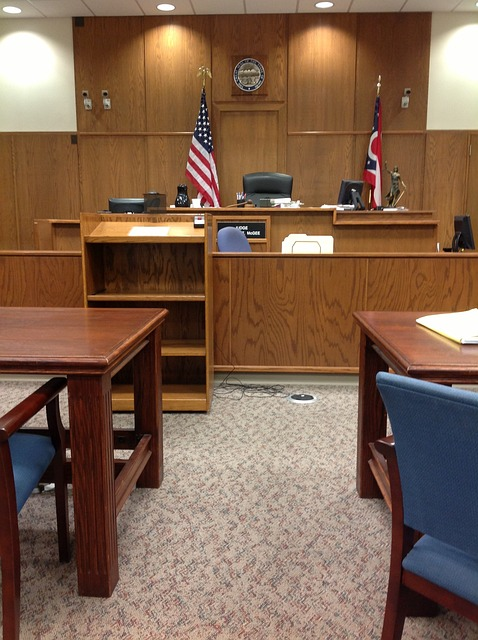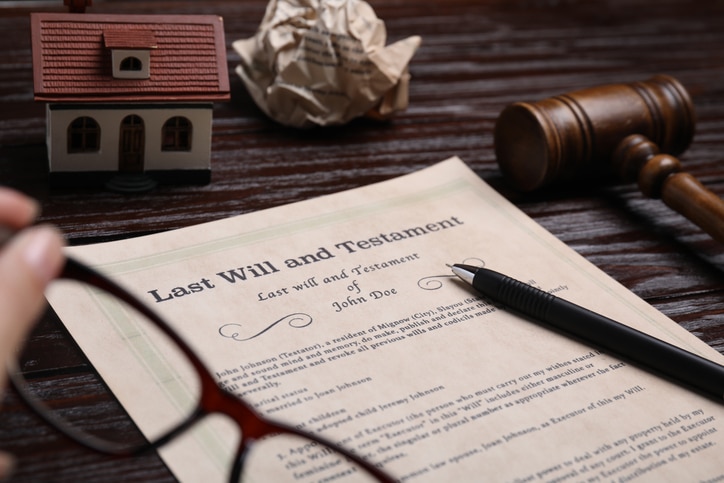Do I Need an Estate Plan?: A Guide to Who Needs Estate Planning
Estate planning may seem like a daunting task, but it is an essential component of securing your family’s future. By understanding the intricacies of estate planning and taking the necessary steps to create a comprehensive plan, you can ensure your loved ones are well taken care of and your assets are distributed according to your wishes. This blog post will guide you through the various aspects of estate planning, from understanding its importance to finding the right professional to help those who need estate planning navigate the process.
Short Summary
- Estate planning is a process of creating documents and setting up trusts to ensure wishes are carried out.
- It is important for individuals with new families, complicated finances, minor children or blended families to undertake estate planning.
- Strategies such as establishing a living trust and utilizing joint ownership can protect the privacy of one’s family in the context of estate planning.
Understanding Estate Planning: What It Is and Why It Matters
The estate planning process encompasses organizing the distribution of one’s assets and care after death or incapacitation, which involves:
- creating a will
- designating beneficiaries
- setting up trusts
- funding your trust
At present, only 42% of American adults possess estate planning documents such as a will or living trust. Estate planning is not exclusively for the wealthy; every individual should consider it, regardless of their financial condition, as tax law and other regulations may impact the distribution of their assets.
A good estate plan outlines can:
- Reduce taxes and expenses
- Facilitate the avoidance of legal complications for your family members
- Outline the distribution of assets
- Ensure that your wishes are carried out
- Create a plan for your children in the event you cannot care for them
- Plan for your own disability
Preparing a comprehensive and secure estate plan can put your loved ones, including other family members, in a much more comfortable situation.
Key Components of an Estate Plan
The essential elements of an estate plan consist of:
- Wills
- Trusts
- Beneficiary designations
- Power of attorney
- Healthcare directives
A will is a primary component of estate plans, which outlines how assets should be distributed and who should be responsible for managing the estate. Naming a beneficiary on bank accounts is essential, as it will take precedence over any other estate planning documents, thus avoiding probate.
An executor is responsible for administering assets after the owner’s death and ensuring their last wishes are fulfilled. It is advisable to consider age, health, and location when selecting an executor. A family member, friend, or any individual who is reliable, trustworthy, and organized may be appointed as an executor.
The Role of Estate Taxes in Estate Planning
Estate taxes are imposed on the transfer of property from a deceased individual to their beneficiaries and can significantly reduce the size of the estate, consequently affecting the distribution of assets. Adopting appropriate estate planning strategies can help reduce the impact of estate taxes, including utilizing exemptions, deductions, and credits. Structuring assets in a manner that minimizes the amount of taxes owed is also an effective strategy.
Who Needs Estate Planning?
Estate planning is a prudent measure for all individuals; however, it is especially vital for:
- New parents
- Those with intricate financial circumstances
- Parents with minor children
- Business owners
- Couples with blended families
- Anyone facing or contemplating long term care
These individuals must engage in estate planning to guarantee the correct distribution of assets and guardianship, as well as protection of assets. Without an appropriate estate plan, your family may be required to undertake a prolonged visit to the probate court, which could result in legal expenses and potentially the inability to receive the entire inheritance you intended for them.
Proper estate planning is an essential aspect of personal finance. If no estate plan is established, then the default rules of the relevant state will apply, which may not align with your wishes. Seeking tax advice from a professional can help ensure that your estate is distributed according to your wishes.
Parents with Minor Children
It is essential for parents to create guardianship and financial arrangements for their children within their estate plan. Unsettled personal loans and credit card debt that are not in anyone else’s name can impede the distribution of assets to family and loved ones.
Parents with minor children necessitate the drafting of a will, procurement of life insurance, establishment of durable powers of attorney and a living will, and contemplation of creating a trust.
Business Owners
Business owners should consider estate planning for the following reasons:
- Transition of their company
- Protection of family and assets
- Consideration of the best interests of the business and family
- Estate tax deferral for small business owners.
Estate tax deferral permits small business owners to:
- Postpone the payment of estate taxes until after the business has been passed on to the next generation
- Facilitate the preservation of the business
- Enable the business to keep producing income for the family
Couples with Blended Families
Estate planning for blended families is significant as it can facilitate the preparation for potential circumstances, such as providing a different inheritance to biological children than to stepchildren, or safeguarding a biological family’s inheritance should a spouse remarry.
Blended families ought to contemplate scenarios such as bestowing a different inheritance to biological children than to stepchildren or safeguarding a biological family’s inheritance in the event that a spouse remarries.
The Probate Process and Privacy Concerns
The probate process is the formal legal procedure that authenticates a will and designates an executor or personal representative to manage the estate and disperse assets in accordance with the will. It entails examining the possessions of the deceased individual, settling debts and taxes, and allocating inheritances to the rightful beneficiaries. The length of the probate process can fluctuate, but it usually takes between 9 months to 1 1/2 years or even longer.
Estate planning can reduce probate costs and delays by establishing a plan that specifies how assets should be distributed upon death. It can further protect the family’s privacy by allowing the estate to be settled without the need for a public probate court hearing. In many, perhaps most, cases the cost of a proper estate plan is far less than the cost of probate.
Minimizing Probate Expenses and Delays
Various techniques may be employed to reduce probate expenses and delays, including establishing a living trust, utilizing a pour-over will, and creating joint ownership of assets.
An estate planner can assist in minimizing or eliminating estate taxes, circumvent probate, and safeguard your assets from the creditors of your beneficiaries.
Protecting Your Family’s Privacy
To ensure the confidentiality of one’s family in the context of estate planning, creating a living trust, utilizing joint ownership and asset donation, and disclosing one’s estate plan to one’s family may be considered.
Establishing a living trust, utilizing joint ownership and asset donation, and disclosing the estate plan to family members are all potential strategies to protect family privacy in estate planning.
Preparing for Incapacity: Financial and Healthcare Decisions
Estate planning involves the preparation of documents in the event of incapacitation. Some important documents to consider include:
- Financial power of attorney: This document permits one to appoint someone to assist with their financial affairs in the event of their inability to manage them independently.
- Power of attorney for health care: This document gives an individual the authority to make decisions related to one’s health care. It is also referred to as a health care proxy.
- HIPAA authorization: This document provides extra protection by allowing designated individuals access to medical information.
- Living will: This document outlines an individual’s wishes regarding medical treatment in the event they are unable to communicate.
Both the financial power of attorney and the power of attorney for health care should be “durable,” meaning they remain valid during a period of incapacity.
It is recommended to review your financial power of attorney and power of attorney for health care to ascertain if you are still comfortable with the designated individual(s) and collaborate with your attorney to verify the documents are up to date and accurately reflect your wishes. If you do not possess financial power of attorney and power of attorney for health care, it is advisable to contact an attorney to have them drafted.
Philanthropy and Legacy Planning
Philanthropy in estate planning refers to the incorporation of charitable giving and donations into your estate plan, allowing you to make a beneficial contribution by donating to organizations that coincide with your values and support causes you deem important. This can be achieved through various estate planning tools, such as:
- Naming a charity as a beneficiary in your will or living trust
- Creating charitable trusts
- Establishing a donor-advised fund
- Setting up a private foundation
By utilizing these estate planning strategies, you can effectively manage taxes, transfer wealth, and support charitable objectives.
Estate planning tools such as charitable trusts can be used to provide tax benefits and transfer wealth.
When to Review and Update Your Estate Plan
It is advisable to reassess your estate plan after significant life occurrences and alterations in the law. Examples of major life events that necessitate an estate plan review include:
- Marriage
- Divorce
- The birth of a child
- The death of a spouse
- The purchase of a new home
- The sale of a business
It is recommended to review and update your estate plan every three to five years or after a significant life change. Ensuring the accuracy and relevance of your estate plan is essential to guarantee its effectiveness. As your life circumstances change, it is crucial to make adjustments to your estate plan accordingly, keeping it up to date and reflective of your current wishes and financial situation.
DIY vs. Hiring an Estate Planning Professional
DIY estate planning is an option for less complex estates. This can be done with the help of estate planning software or websites. These tools can assist you in constructing:
- a will
- power of attorney
- power of attorney for health care
- living will
- and more
The advantages of DIY estate planning are that it is cost-efficient and can be accomplished expeditiously, while the disadvantages are that it may be daunting and there are associated risks. There is also no legal advice given, and you may not know what is the best or safest option to suit your situation.
It is advisable to engage an estate planner in the following situations:
- If you own any real property
- If you have a business
- Any time there is a major life change
- When you have children under the age of 18
- When you own property in multiple states
- When there are no obvious heirs
Engaging the services of an estate-planning attorney can enable you to construct a comprehensive and legally sound plan, ensuring the best possible outcome for your loved ones.
How to Find the Right Estate Planning Expert

Finding the right estate planning expert is crucial to creating a secure and well-structured plan for your family’s future. Methods for locating a qualified estate planner include:
- Consulting the state or local bar association
- Requesting referrals from financial advisors or friends
- Researching potential estate planners’ credentials and background
- Understanding their fees
These steps can help you make an informed decision when selecting the right professional to assist you.
Estate Planning Tips for a Secure Financial Future
To create a secure financial future through estate planning, consider staying organized, managing debt, and regularly reviewing your financial planning strategy. Organization can help you maintain a clear understanding of your assets and financial situation, ensuring that your estate plan remains accurate and relevant throughout your life.
Managing your debt is essential, as unsettled personal loans and credit card debt that are not in anyone else’s name can impede the distribution of assets to family and loved ones. Regularly reviewing your estate plan, especially after major life events, helps guarantee that it accurately reflects your current wishes and financial situation, ensuring you make sound financial decisions.
By staying organized, managing debt, and keeping your estate plan up to date, you can create a secure financial future for yourself and your loved ones.
Summary
Estate planning is an essential component of securing your family’s future and ensuring your assets are distributed according to your wishes. By understanding the intricacies of estate planning, considering the needs of all family members, and seeking the guidance of a professional, you can create a comprehensive and legally sound plan that provides peace of mind for both you and your loved ones. Remember that estate planning is an ongoing process, and regularly reviewing and updating your plan will help guarantee its continued effectiveness and relevance.
Related Links:
- Who Needs Estate Planning?
- Your Complete Guide on How to Create a Trust: Steps and Strategies for Secure Estate Planning
- Navigating Estate Planning for Blended Families: Essential Strategies and Tips
Frequently Asked Questions
Everyone needs an estate plan to protect their assets and their loved ones, ensure their wishes are followed, and avoid unexpected taxes and court decisions.
Creating an estate plan can be a complex process, but it doesn’t have to be. With the right guidance and resources, you can create a plan that meets your needs and those of your family.
Estate planning provides peace of mind for families, ensuring that their loved ones will be provided for even after they’re gone. It allows individuals to pass on the fruits of their hard work and dedication, enabling them to continue providing a comfortable lifestyle to their family.
Ultimately, estate planning benefits families most of all.
For many people, procrastination is the biggest factor in not having an estate plan. Other reasons include not knowing what needs to be done or where to start, as well as believing myths that wills are confusing and expensive. Another reason is they think you must be “rich” to need an estate plan- which could not be further from the truth!
These beliefs prevent them from making a plan and protecting their assets.
It is generally recommended to begin estate planning as soon as you are legally an adult and update your plan every three to five years thereafter.
The primary component of an estate plan is a will and trust, which determines how assets are distributed and who is responsible for managing the estate.
It is important to create a will that is tailored to your individual needs and goals. This document should be reviewed and updated regularly to ensure that it reflects your current wishes. Additionally, other estate planning documents, such as powers of attorney, are available. There may be special types of trusts appropriate for your situation as well.















